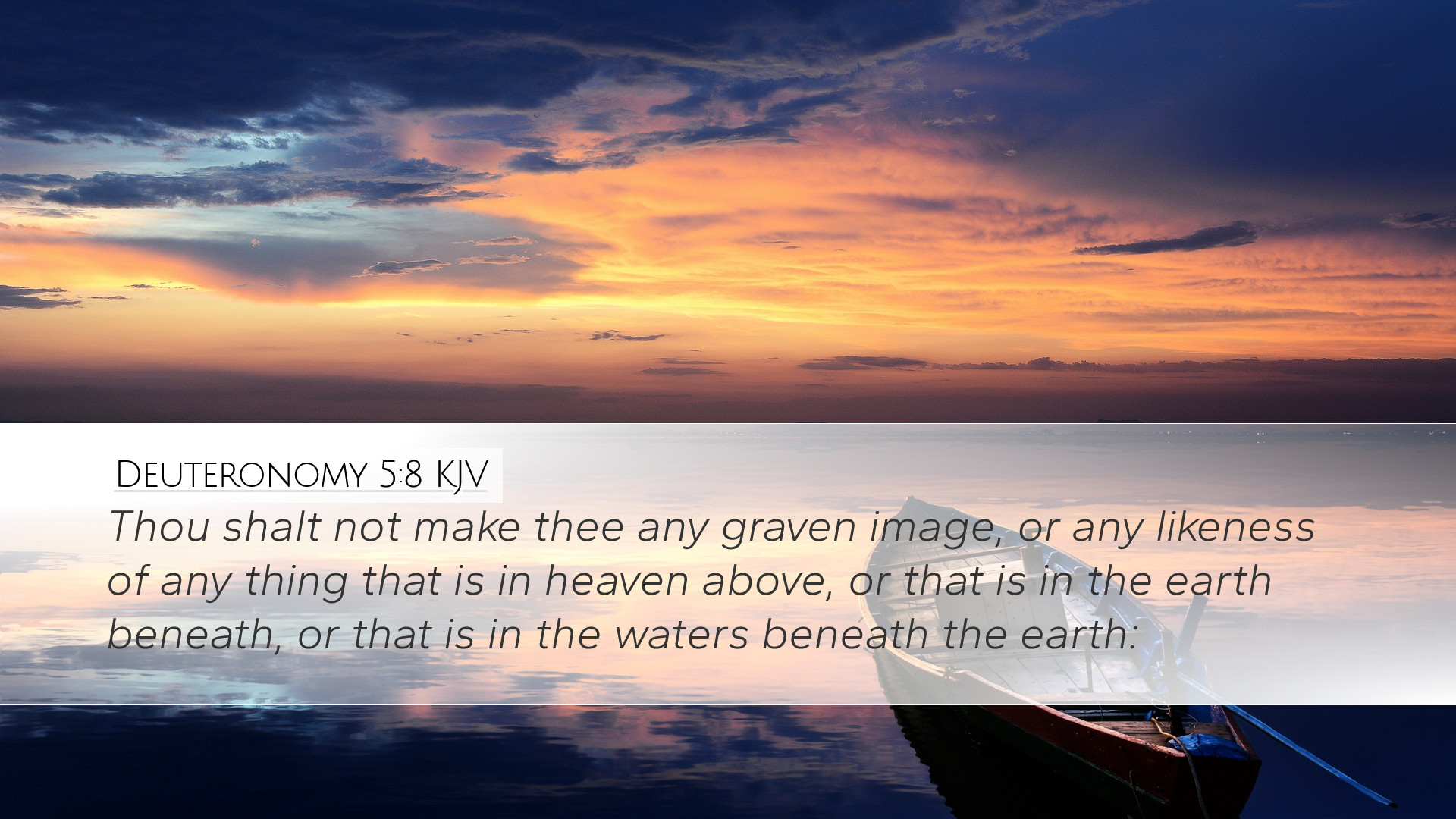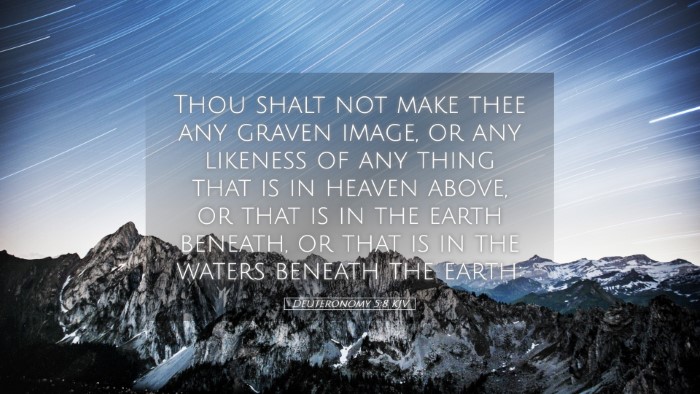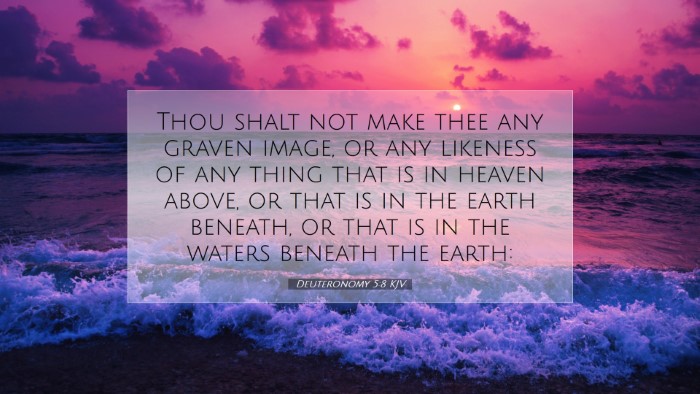Bible Commentary on Deuteronomy 5:8
Verse: "Thou shalt not make thee any graven image, or any likeness of any thing that is in heaven above, or on the earth beneath, or in the water under the earth."
Introduction
Deuteronomy 5:8 is a pivotal verse in the Decalogue, stating a fundamental command regarding the worship of God. This commandment emphasizes the prohibition of idolatry, which was a significant aspect of both ancient Israelite religion and the surrounding cultures. Understanding this verse requires delving into the cultural, theological, and historical contexts that shaped its meaning and implications.
Theological Significance
This commandment serves not only as a prohibition but also as a declaration of God's unique nature. The affirmations made here touch on God's transcendence—the idea that He exists beyond the physical realm and cannot be fully represented by material objects.
1. The Nature of God
Matthew Henry emphasizes the necessity of understanding God’s invisibility and incomprehensibility. Graven images reduce the divine to human dimensions, making God relatable in ways that can miss His majesty. In contrast, God manifests His presence in ceaselessly imaginative ways that cannot be captured in a mere idol.
2. The Danger of Idolatry
Albert Barnes notes that the command against images is a shield against the seduction of foreign cult practices. The Israelites were often tempted by surrounding nations whose worship practices included physical representations of deities. Barnes emphasizes that such actions not only deviate from true worship but also lead to destructive social morality.
Cultural Context
This commandment must be understood within its ancient Near Eastern context. Nations surrounding Israel, such as the Egyptians and Canaanites, engaged in elaborate rituals that included the use of graven images.
1. Contrast with Surrounding Nations
Adam Clarke argues that the strict prohibition against images highlighted the distinctiveness of Israel’s relationship with God. Clarke illustrates how Israel's identity is wrapped in a monotheistic framework, contrasting sharply with polytheistic traditions that relied upon tangible representations of divine beings. This commandment serves as a reminder that true worship does not require images, reflecting an active, vibrant faith rather than a passive visual devotion.
2. Historical Backdrop
The historical situation during the giving of these laws was crucial. As the Israelites were poised to enter Canaan, they were influenced by the imminent exposure to idolatrous practices. Recognizing their tendencies, Moses emphasized this commandment as a safeguard against cultural assimilation and spiritual decline.
Practical Implications
In our contemporary context, the third commandment remains relevant. Adherents of the faith are urged to reflect on how this commandment manifests in today’s world. The significance of aligning personal worship with the divine nature of God challenges believers to examine their practices and beliefs.
1. Modern Idolatry
Though physical idols may not be prevalent in most Western societies today, Matthew Henry suggests that idolatry can take many forms—such as materialism, celebrity worship, and the elevation of political figures. Each of these substitutes the genuine worship of God with transient and ultimately unsatisfying substitutes.
2. Evolving Understanding of Worship
Albert Barnes posits that true worship should focus on the spirit rather than physical representation. The internal state of reverence and love for God is what He seeks rather than mere external display. Such an understanding encourages believers to cultivate a personal relationship with God that transcends ritualistic practices.
Conclusion
Deuteronomy 5:8 serves as both a command and a crucial theological principle. By prohibiting graven images, God is not only protecting His people from the wrong practices but also guiding them into a greater understanding of who He is—a God that cannot be confined or represented by physical means. In our studies and leadership roles, these insights serve to reinforce the importance of a pure, unadulterated worship that honors the nature of God.
Reflection Questions
- How can we ensure our worship practices align with the instructions given in Deuteronomy 5:8?
- What modern-day idols must be confronted in our personal lives and communities?
- In what ways can we articulate God’s transcendence effectively to those around us?


